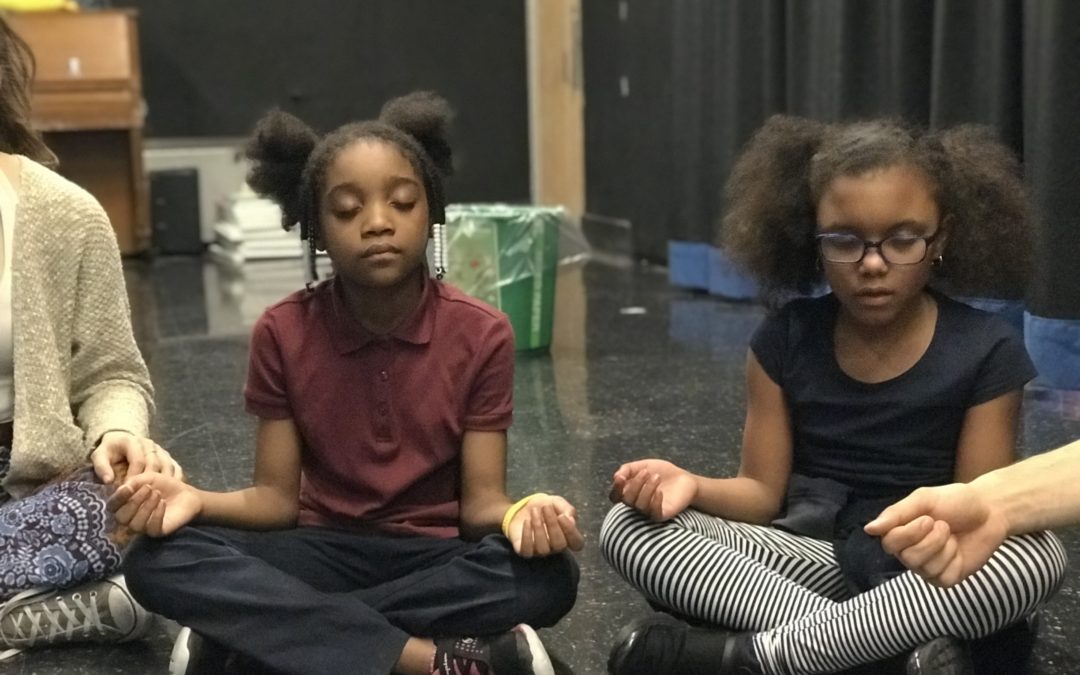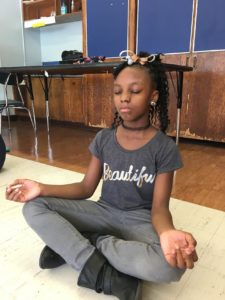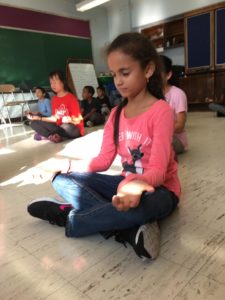Everyday, we are waking up to more headlines and developments about the ongoing coronavirus pandemic. The spread of COVID-19 has disrupted life as we know it. At this moment of high anxiety and distress, it’s important to take time to care for yourself.
Mindfulness and meditation are useful tools to help combat anxiety and stress. These practices are useful in our everyday day lives, but their value is worth emphasizing at a time like now. While we take precautions to protect our physical health (social distancing, washing hands, etc.), it’s important not to let our mental health get brushed under the rug.
Bringing mindfulness into our lives can help us slow down and organize our thoughts. Setting aside time to turn off the news, silence alerts on our phones, and checking in with ourselves can help us navigate this moment with less panic.
We recently started a 6-week unit on mindfulness and hope it will help our students keep their minds healthy during this time. With the recent announcement that NYC public schools will be closed for an undetermined period of time, we hope that our students continue this practice throughout this unprecedented moment. Practicing mindfulness and meditation has been proven time and time again to help improve the mental, emotional, physical, and social wellbeing. Research shows that effective mindfulness routines can help young people be more focused, pay attention, think in creative ways, improve memory and problem solving skills.
As students manage the stress of this unprecedented moment while still attending classes, it’s vital to give young people (well, all people) the tools they need to manage their emotions and continue learning. According to the National Institute on Mental Health, one in five American children struggles with stress and anxiety. Adolescents that practice mindfulness also tend to have less negative emotion and anxiety.
How does it work, exactly? When effective mindfulness practices are introduced into our lives, our brain activity is altered. The amygdala is the part of the brain that is activated when we experience strong emotions, like fear or stress. The hippocampus is the part of the brain that is most important for learning and memory. The hippocampus is also in charge of regulating the amygdala. Mindfulness activities help activate the hippocampus, enhancing our ability to focus and manage emotions.
Here are some ways you can bring mindfulness into your life today, and everyday:
- Set aside time everyday to not engage with any media. Turn off the TV, and silent your phone. Take some time to be with yourself without the onslaught of headlines and updates.
- Practice breathing exercises. You can check out some simple exercises here.
- Take time to think over choices and decisions.
- Do a body scan. Start by finding a quiet place where you can be still. Start the bottom of your body, with your toes. Shift all of your focus to a single part of your body – how it feels, the sensations its experiencing, what its touching. Carefully move your focus up until you’ve focused on each part of your body.
- When you go out in public, be aware of your surroundings and your body.
So, take a moment. Breathe. Breathe in, breathe out. If you can, try to take some time to focus on your immediate self and how you’re feeling. Mindfulness is important now more than ever.



